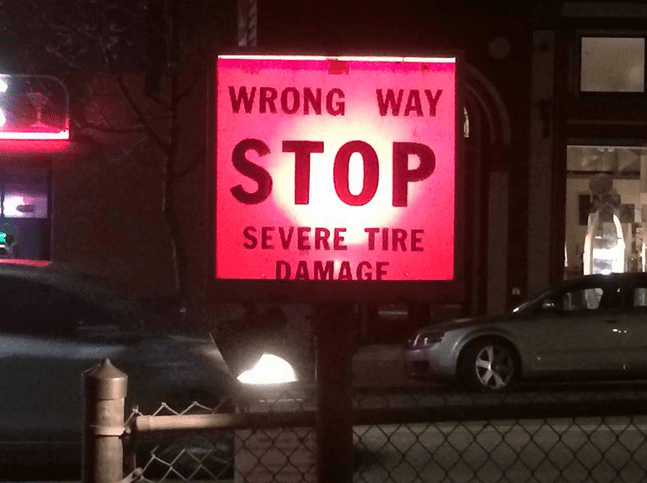 John Dehlin (of Mormon Stories Podcast fame) has recently published the first batch of results from his survey on Mormon Disaffection. It makes for some telling reading. Dehlin received survey responses from over 3000 Mormons who no longer believe the church to be true. Despite the fact that many of us have been led to think that people leave the church because they are aching for a Pinot, they’ve been offended by the Ward Clerk, or they have a wee itch they need to scratch, it would appear that an overwhelming majority of people who participated in the survey cited issues with church history, or doctrine as the key factors in their disaffection. Clearly we Mormons need to have a bit of a chat!
John Dehlin (of Mormon Stories Podcast fame) has recently published the first batch of results from his survey on Mormon Disaffection. It makes for some telling reading. Dehlin received survey responses from over 3000 Mormons who no longer believe the church to be true. Despite the fact that many of us have been led to think that people leave the church because they are aching for a Pinot, they’ve been offended by the Ward Clerk, or they have a wee itch they need to scratch, it would appear that an overwhelming majority of people who participated in the survey cited issues with church history, or doctrine as the key factors in their disaffection. Clearly we Mormons need to have a bit of a chat!
I was 17 when I first read Fawn Brodie’s (1945) ‘No Man Knows My History’. I wasn’t necessarily looking for it, I just found it on the book shelf at home and read it from cover to cover. ‘Wow’, I thought, ‘Joseph Smith was polygamous, how come they never taught me that at church?’ I was pretty excited about having a discussion about Emma Smith the next Sunday in Young Women’s and enthusiastically broached it with my Laurel’s advisor.
‘Joseph Smith was polygamous and how come we don’t talk about Emma Smith much?’ I queried her with excitement.
I was surprised by the reaction. I thought Young Women’s Presidents were up for anything! She wasn’t defensive or rude, she just looked deeply uncomfortable and said, ‘Well, we just don’t talk about those things’.
‘Why not?’ I responded, beginning to feel a bit deflated.
‘Because Emma did some things…..,’ came the reply.
‘What things?’, I pressed.
‘Well there are some things that we don’t talk about’.
‘Joseph married a teenager, her name was Fanny Algers. Emma threw her out of the house – I would too if I was her. I can’t believe she put up with that.’
No response.
‘I’ve read Lucy Mack Smith’s History and another book by Fawn Brodie. I thought Emma was pretty great. Heaps of her children died and she wouldn’t go West with the other saints after Joseph died. Brigham said lots of rude things about her. Why did he say those things?’ It all came out in a rush.
‘Well, its probably best not to dwell on those things.’
‘Why not????’, I demanded to know while inside I screamed, ‘If its true, why can’t we talk about it?’
I was getting no where and soon gave up, but not without a sense that something was egregiously wrong.
Up until then I thought everything was up for discussion. I grew up in the home of the Stake President who happened to be an historian as well. He subscribed to Sunstone, Dialogue, read Eugene England, bought every book about Mormonism he could afford on his trips to General Conference and was personally and professionally acquainted with Leonard Arrington. He allowed me to read the General Handbook of Instructions from cover to cover without so much as a flicker of concern, and would listen attentively and sympathetically about my discontent with the Young Women’s curriculum. He occasionally grumbled about authoritarian church leaders who loved the sound of the their own voices, and bemoaned the tedium of Mormon meetings. So imagine my surprise and disconcertion when I started coming up against these brick walls.
Over the intervening 27 years I have had lots of time to think about being a Mormon because for all of that time (and the 17 years before that) I have been a Mormon on a daily basis. All of this thinking has lead me to ask myself on several occasions this one fundamental and concerning question: ‘Why am I part of a church that proclaims it is true, but struggles to talk about everything that is true? A secret, or a polite silence, does not a truth make’.
I’ve since discovered that one of the MO’s of Mormonism is to try not to upset the fragile and tender faith of the many by not airing its own dirty laundry. This somehow takes precedence over those who actually do have questions. Interestingly the survey indicates that the largest cohort of those leaving the church are educated family men. So clearly there is a bit of a miscalculation going on here. Educated family blokes who have questions seem to be battling their faith crises in a climate that supports conservatism, orthodoxy, and correlation – none of which I believe are entirely healthy for a church with aspirations the size of the world. As I’ve progressed in the church I’ve noticed a fragility in Mormonism that has caused a certain heavy handedness and protectiveness with respect to the questioning of its past. Unfortunately it does seem to me to be at odds with its own theological story of spiritual expansiveness and truth. In this respect I do believe that the church is shooting itself in the foot.
Last week Radio New Zealand did a 50 minute spot on Mormons. Probably on account of the excessive attention things Mormon are getting in the media in the US with the run up to the Republican nomination. It was OK, I suppose, but every Mormon who has been around the block some would have been able to anticipate every thing the missionaries were saying because it was laden with ‘Hyper PR self-consciousness’. It had this mechanistic, ‘Keep it glossy and they’ll all want to join the church’ flavour. But it came across as scripted and sanctimonious. The interviewer interrogated the missionaries about garments, and Kolob, and blacks and the priesthood but found himself rushing headlong into a warm pile nothing because they clearly knew nothing, and while they tried they had no adequate response except to say that they loved Jesus. Its times like that you really hope that CES will do a makeover because it had clearly let these boys down.
“What a wasted opportunity”, I thought.
What we Mormons need to do is to talk. Lets just talk, lets really, really talk for once and for all about what it means to be a Mormon, to wear the badge of a missionary minded religious outsider but to be sympathetic to the real reasons people might close the door on our zeal.
To wonder constantly about the lack of literal evidence for a Mesoamerican setting for the Book of Mormon, but to be spiritually compelled by this wondrous book all the same.
To hate the idea of polygamy with our whole being, and to wonder constantly if it really is still part of our faith.
To try to spiritually manage the brutalizing and spurious claims of past racist leaders, and to wonder how we went from religious apartheid then, and inclusivity now, without so much as a ‘sorry about that‘ in between.
To joyfully and emphatically sustain the President of the Church as a prophet, seer and revelator but to feel some worry at missing the actual prophecies and the translations, and to experience some confusion about the difference between counsel and revelation.
To wonder at the grace and beauty of the temple ritual but to have to reconcile it with its obvious roots in the Masonic tradition.
To have to negotiate this image of saccharin womanhood that keeps being thrown up to us from the pulpit, and to struggle to make those well intentioned but nauseating aphorisms mean anything that will make a difference at home when you have a meal to make, and kids you feel allergic to swirling around you bleating for food.
To be called as the Relief Society President but to really want to be called as the Bishop so you can sort out the blimin ward which sometimes feels like it was organised down at the pub during happy hour.
To love church and its weekly possibility of transformation, but to be bored to the core with its merry-go-round, recycled, four year curriculum that offers us spiritual twinkies while we are starving for a Sunday pork roast.
To hate American arrogance in global politics, American consumptive habits, American media spew, America’s shameless bigness, American racism, Americas absence of doubt in itself, the American sense of entitlement, but to cherish the church that had the resources to reach out to us in New Zealand precisely because it is American.
To enjoy loving relationships with your gay friends and family but to bare the shame of a pointless and embarrassing foray into state politics which we should have left well alone.
I say we share a conversation, and together try to work all of this out in the spirit of honesty and integrity – without rancour or fear.
I hope that we as a community can honestly get to the point where we can say, ‘Yes, I know all about those things. But I also accept that it is within the context of this church that my most profound spiritual awakenings have occurred. Its for that reason that I love the church even while I know the church . For me its home. And maybe, just maybe, its better for my staying’.
You can find the survey at:
http://whymormonsleave.com/wp-content/uploads/2012/01/WhyTheyLeave_30Jan2012v4.pdf
For a discussion about the survey check out Mormon Matters podcast at:











